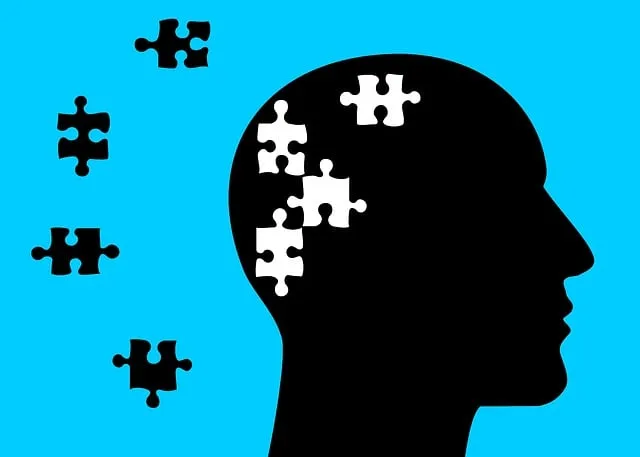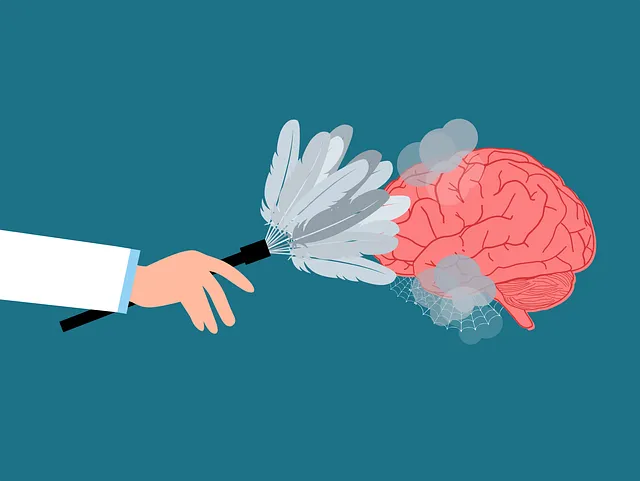Mental health diagnosis in diverse populations is challenging, but organizations like Littleton Kaiser Permanente are revolutionizing care through cultural sensitivity training, burnout prevention for providers, and innovative practices. Their holistic approach integrates Mind Over Matter principles, empathy-building strategies, and mindfulness to enhance symptom understanding, improve diagnostic accuracy, and tailor treatment plans, ensuring comprehensive mental health coverage that promotes long-term wellness. Leveraging technology alongside evidence-based methods, Littleton Kaiser Permanente is paving the way for future mental health assessments, aiming to provide personalized support through AI algorithms and VR experiences.
Mental illness diagnosis accuracy is a critical aspect of patient care, with significant implications for treatment outcomes. This article delves into the current challenges and efforts to enhance diagnosis reliability. We explore the complex landscape of mental health assessment, focusing on strategies employed by organizations like Littleton Kaiser Permanente to improve mental health coverage. Additionally, we discuss evidence-based practices and future technologies that aim to revolutionize accurate mental illness diagnosis, emphasizing the importance of continuous improvement in this vital area.
- Understanding Mental Health Diagnosis: The Current Landscape
- Challenges in Accurate Diagnosis: A Comprehensive View
- Littleton Kaiser Permanente's Approach to Enhancing Mental Health Coverage
- Evidence-Based Practices for Improving Diagnosis Accuracy
- Future Strategies: Technology and Training in Mental Health Assessment
Understanding Mental Health Diagnosis: The Current Landscape

Mental health diagnosis is a complex and evolving field, with challenges that require continuous improvement. In today’s healthcare landscape, accurate mental illness diagnoses are essential for effective treatment and management. However, the current system faces significant barriers, particularly in navigating diverse patient populations. Littleton Kaiser Permanente, a renowned healthcare provider, recognizes these issues and has been at the forefront of efforts to enhance mental health diagnosis accuracy.
The process often involves a delicate balance between understanding individual symptoms and recognizing broader cultural and societal influences. Cultural sensitivity in mental healthcare practice is crucial, as it ensures that diagnoses are not skewed by biases or misunderstandings. Burnout prevention strategies for healthcare providers are also integral to maintaining accurate assessments, as fatigue and stress can impact judgment. By addressing these aspects, organizations like Kaiser Permanente strive to provide comprehensive care, ensuring that every patient receives a precise diagnosis tailored to their unique needs and cultural background.
Challenges in Accurate Diagnosis: A Comprehensive View

Diagnosing mental illnesses accurately can be a complex task due to several interrelated factors. One significant challenge is the vast spectrum of symptoms and behaviors associated with various conditions, which often overlap, making differentiation difficult. For instance, symptoms of anxiety disorders might resemble those of depression, leading to misdiagnosis or delayed treatment. Additionally, individual presentations vary widely, even within the same diagnosis, further complicating the process. This complexity necessitates a comprehensive approach in mental health care.
The healthcare system plays a pivotal role in improving diagnostic accuracy. Organizations like Littleton Kaiser Permanente can contribute by enhancing their mental health coverage and resources. Implementing comprehensive training programs for healthcare providers on cultural competency is essential, as it enables them to navigate diverse patient populations effectively. Equally important are initiatives promoting self-care practices among professionals, which can reduce burnout and enhance attention to detail. Moreover, fostering effective communication strategies between patients and providers can facilitate a more nuanced understanding of symptoms, leading to more precise diagnoses and tailored treatment plans.
Littleton Kaiser Permanente's Approach to Enhancing Mental Health Coverage

Littleton Kaiser Permanente has made significant strides in enhancing its mental health coverage, reflecting a commitment to holistic patient care and well-being. Their approach centers around integrating Mind Over Matter Principles into the fabric of their services, ensuring that mental health support is accessible and tailored to individual needs. By fostering an environment of empathy and understanding, they encourage patients to embrace recovery journeys at their own pace.
This strategy includes implementing Empathy Building Strategies within healthcare settings, promoting a sense of safety and trust among patients. Additionally, they actively incorporate practices such as Mindfulness Meditation into treatment plans, empowering individuals to manage stress and cultivate mental resilience. These initiatives not only improve diagnosis accuracy but also foster long-term wellness, ensuring that patients receive comprehensive care tailored to their unique circumstances.
Evidence-Based Practices for Improving Diagnosis Accuracy

Improving diagnosis accuracy in mental health is a multifaceted approach that leverages evidence-based practices. One such practice is adopting structured clinical assessments, which involve standardized tools and protocols to gather patient information. These include diagnostic interviews and psychological tests designed to capture specific symptoms and their impact on daily functioning. For instance, the Littleton Kaiser Permanente mental health coverage incorporates such methods to ensure accurate evaluations.
Additionally, empathy building strategies play a crucial role in enhancing diagnosis accuracy. Mental healthcare professionals who demonstrate active listening and genuine concern can foster open communication with patients. This not only helps in gathering more detailed information but also builds trust, encouraging patients to disclose relevant insights that may impact their diagnosis. Cultural sensitivity in mental healthcare practice is another important component, ensuring that assessments consider the unique cultural contexts and beliefs of individual patients. Integrating Stress Management techniques into routine care can also provide valuable insights, as stress levels can significantly influence symptom presentation and diagnosis.
Future Strategies: Technology and Training in Mental Health Assessment

The future of mental health assessment lies in the integration of technology with comprehensive training programs. Kaiser Permanente Littleton, for instance, is at the forefront of this initiative by utilizing advanced digital tools to enhance diagnosis accuracy. With an increasing focus on mental health awareness, these strategies aim to revolutionize the way professionals approach emotional regulation and overall well-being.
Through innovative technologies, such as artificial intelligence (AI) and virtual reality (VR), mental health coverage can be improved. AI algorithms can analyze vast amounts of data to identify patterns and predict potential mental health disorders, while VR offers immersive experiences for therapeutic interventions. Combined with rigorous training, these tools empower healthcare providers to deliver more precise diagnoses and personalized treatment plans. This holistic approach ensures that individuals receive the most effective support, fostering positive thinking and better emotional management.
Mental illness diagnosis accuracy is a multifaceted challenge that requires innovative solutions. As discussed, challenges range from subjective symptoms to healthcare provider bias and limited resources. However, through comprehensive training, evidence-based practices, and the integration of technology, such as Littleton Kaiser Permanente’s enhanced mental health coverage models, significant improvements can be made. By adopting these strategies, we can ensure more accurate diagnoses, better patient outcomes, and a more supportive healthcare system for those facing mental illness.






